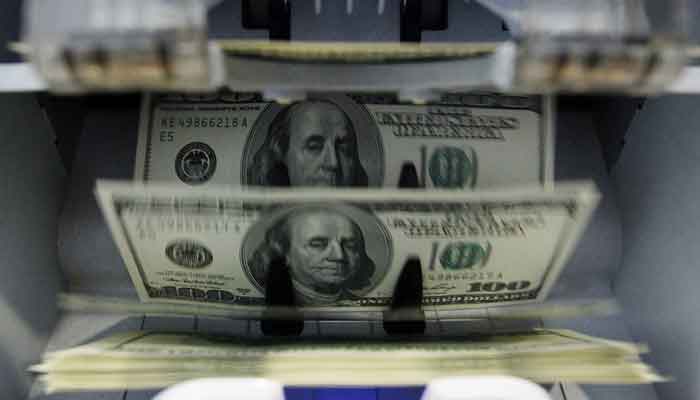Weaponized finance
Weaponization of finance is all about bringing into service financial instruments and tools in order to advance a country’s national security interests.
The US Department of Treasury now has a definite – -and defined – role in “advancing US national security interests.” Ian Bremmer, the founder of Eurasia Group, asserts that “instead of fighting countries militarily, the US can now cripple them financially.” Bremmer told Yahoo Finance that the “almighty dollar is more powerful than nuclear weapons.” According to Ian Bremmer, “George Washington carried a musket. Franklin Roosevelt sent in heavy bombers. The [new] armament of choice is weaponization of finance.”
Jack Lew, the 76th US secretary of treasury, told a symposium entitled ‘The evolution of Treasury’s National Security role’ that the “weaponization of finance offers to the US a new battlefield…..one that enables the US to go after those who wish the US harm without putting US troops in harm’s way or using lethal force.”
Weaponization of finance is all about bringing into service financial instruments and tools in order to advance a country’s national security interests. Weaponization of finance is all about employing new ways in which financially powerful countries use their financial resources – in addition to other instruments of national power – to affect global outcomes. Washington is now fully into weaponizing finance as an instrument of its foreign policy. Washington is now heavily dependent on financial measures in order to achieve its “core foreign policy and national security goals.”
According to Business Insider, “Forget nukes and battleships. Washington may increasingly flex its geopolitical muscle….using an unconventional weapon: finance.” On January 29, WikiLeaks leaked a document titled 'Army Special Operations Forces, Unconventional Warfare (FM3-05.130)'. The leaked document reveals how the US military uses the IMF and the World Bank as ‘unconventional weapons’.
In the US, weaponization of finance also means a link-up between the Department of Treasury and the Central Intelligence Agency (CIA). For the record, David Cohen, who served as Under Secretary in the Department of Treasury, was made deputy director of the CIA.
There’s a new theater in town – the financial theater of war. The new armaments of financial warfare are both analog and digital. Analog weapons include the IMF/World Bank, economic sanctions and anti-money laundering regulations. Digital weapons include denial-of-service attacks, disruptive intrusions and data manipulations.
Forget bombs and bullets. Washington has weaponized finance – and finance is becoming America’s most potent weapon of war. Not to forget that the modern financial infrastructure continues to be America-centric and high-tech in nature. Modern warfare is not about ‘opposing armies’ but a “confrontation between opposing operational systems”. Modern warfare is not about counting ‘enemy casualties’ but about ‘system disruptions’.
Countering the weaponization of finance begins with a mapping exercise of critical financial functions and fault-lines plus a thorough assessment of our non-military vulnerabilities. Developing a counter-strategy to this non-kinetic, non-military assault means adopting a ‘whole of nation’ approach that includes ‘political leaders, military commanders, financial regulators and corporate executives.’
Modern warfare is a perpetual war. Yes, war is “still a contest of wills, but technology is changing its character”. Weaponization of finance aims at weakening the “war waging capability of the target nation”.
The writer is a columnist based in Islamabad.
Email: farrukh15@hotmail.com
Twitter: @saleemfarrukh
-
 WhatsApp Rolls Out Group Message History To Ease Group Chats
WhatsApp Rolls Out Group Message History To Ease Group Chats -
 Tesla Expands Cybertruck Lineup With Affordable Model In US, Slashes Cyberbeast Price To Boost Demand
Tesla Expands Cybertruck Lineup With Affordable Model In US, Slashes Cyberbeast Price To Boost Demand -
 AI Is Not As Powerful As We Think, Says Mathematician Hannah Fry
AI Is Not As Powerful As We Think, Says Mathematician Hannah Fry -
 How Andrew's Feeling Since His Arrest & Subsequent Release Amid Tech & Computers Seize
How Andrew's Feeling Since His Arrest & Subsequent Release Amid Tech & Computers Seize -
 Trump Officially Directs US Agencies To Identify And Release Files On Extraterrestrial Life
Trump Officially Directs US Agencies To Identify And Release Files On Extraterrestrial Life -
 2026 Winter Olympics: Alysa Liu Claims Gold, Snapping 20-year Drought For US Figure Skating
2026 Winter Olympics: Alysa Liu Claims Gold, Snapping 20-year Drought For US Figure Skating -
 Hilary Duff Opens Up About Marriage Fears Despite Strong Bond With Matthew Koma
Hilary Duff Opens Up About Marriage Fears Despite Strong Bond With Matthew Koma -
 ‘Grey’s Anatomy’ Star Eric Dane Breathes His Last At 53
‘Grey’s Anatomy’ Star Eric Dane Breathes His Last At 53 -
 Donald Trump Breaks Silence On Andrew’s Arrest: ‘It’s A Shame’
Donald Trump Breaks Silence On Andrew’s Arrest: ‘It’s A Shame’ -
 DJ Khaled Shares Weight Loss Progress
DJ Khaled Shares Weight Loss Progress -
 Jennifer Aniston And Jim Curtis Share How They Handle Relationship Conflicts
Jennifer Aniston And Jim Curtis Share How They Handle Relationship Conflicts -
 Shamed Andrew Real Birthday Plans As Cops Showed Up At Door
Shamed Andrew Real Birthday Plans As Cops Showed Up At Door -
 Pete Davidson’s Girlfriend Elsie Hewitt Says 'everything Hurts' After Sudden Medical Emergency
Pete Davidson’s Girlfriend Elsie Hewitt Says 'everything Hurts' After Sudden Medical Emergency -
 Princess Beatrice 17 Holidays Per Year Exposed Amid Andrew Arrest
Princess Beatrice 17 Holidays Per Year Exposed Amid Andrew Arrest -
 Who Is 'Queen Of Woke'? UK First Female Civil Head
Who Is 'Queen Of Woke'? UK First Female Civil Head -
 Dwayne Johnson Confesses What Secretly Scares Him More Than Fame
Dwayne Johnson Confesses What Secretly Scares Him More Than Fame




